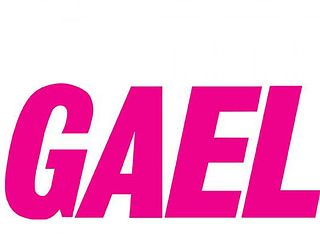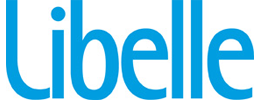
HUMO is a popular Dutch-language Belgian weekly radio and television supermarket tabloid.

L'Express is a French weekly news magazine headquartered in Paris. The weekly stands at the political centre-right in the French media landscape and has a lifestyle supplement, L'Express Styles, and a job supplement, Réussir. Founded in 1953 by Jean-Jacques Servan-Schreiber and Françoise Giroud, L'Express would be considered France's first American-style news weekly. L'Express is one of the three major French news weeklies alongside L'Obs and Le Point.

Het Laatste Nieuws is a Dutch-language newspaper based in Antwerp, Belgium. It was founded by Julius Hoste Sr. on 7 June 1888. It is now part of DPG Media, and is the most popular newspaper in Flanders and Belgium.

The Flemish Diamond is the Flemish reference to a network of four metropolitan areas in Belgium, three of which are in the central provinces of Flanders, together with the Brussels Capital Region. It consists of four agglomerations which form the four corners of an abstract diamond shape: Brussels, Ghent, Antwerp and Leuven. Over 5 million people live in this area, with a population density of about 820 per km2.

DPG Media Group is a Belgian media company also active in the Netherlands and Denmark. It is owned by the Van Thillo family and employs some 6,000 people.
Knack is a Belgian Dutch-language weekly news magazine covering local news, politics, sports, business, jobs, and community events.
The mass media in Belgium is characterized by its diversity due to the linguistic divide in the country.
Le Vif/L'Express is a French language weekly news magazine published in Brussels, Belgium. It has been in circulation since 1963.

Roularta Media Group is a publishing and broadcasting company based in Roeselare, Belgium. Its operations were started in 1954.
Trends is a weekly Dutch language business and finance magazine published in Brussels, Belgium. It is the only business and finance magazine in the country.
Me Naiset is a Finnish language women's magazine published in Helsinki, Finland. It is one of the largest weekly women's magazines in the country and has been in circulation since 1952.

Gael is a French language monthly women's and lifestyle magazine published monthly in Mechelen, Belgium. It has been in circulation since 1988.
Femmes d'Aujourd'hui is a weekly women's magazine published in Mechelen, Belgium. Founded in 1933, it is one of the oldest magazines in the country and the first Belgian women's magazine.
Mondiaal Nieuws, also called MO* - Mondiaal Magazine, is a Flemish quarterly alternative news magazine with a special focus on globalization. The magazine is published as a supplement of the news magazine Knack in Brussels, Belgium.

Libelle is a weekly women's magazine published in Amsterdam, Netherlands. It has been in circulation since 1934.
Het Rijk der Vrouw was a Belgian women's magazine published between 1925 and 1990.
Vitaya is a former women's magazine published in Belgium which was founded in 2001. The magazine was owned by De Persgroep. In February 2017, Vitaya was merged with another Persgroep title, Goed Gevoel.
Cosmopolitan Russia was the Russian edition of Cosmopolitan magazine. It was the first international women's magazine published in the post-Soviet period in Russia. It changed its title to The Voice Mag and ended its affiliation with Cosmopolitan magazine in March 2022 following the Russian invasion of Ukraine.
Moustique is a weekly news magazine with a special reference to current affairs, culture and television. It has been in circulation since 1924 and is headquartered in Brussels, Belgium.








